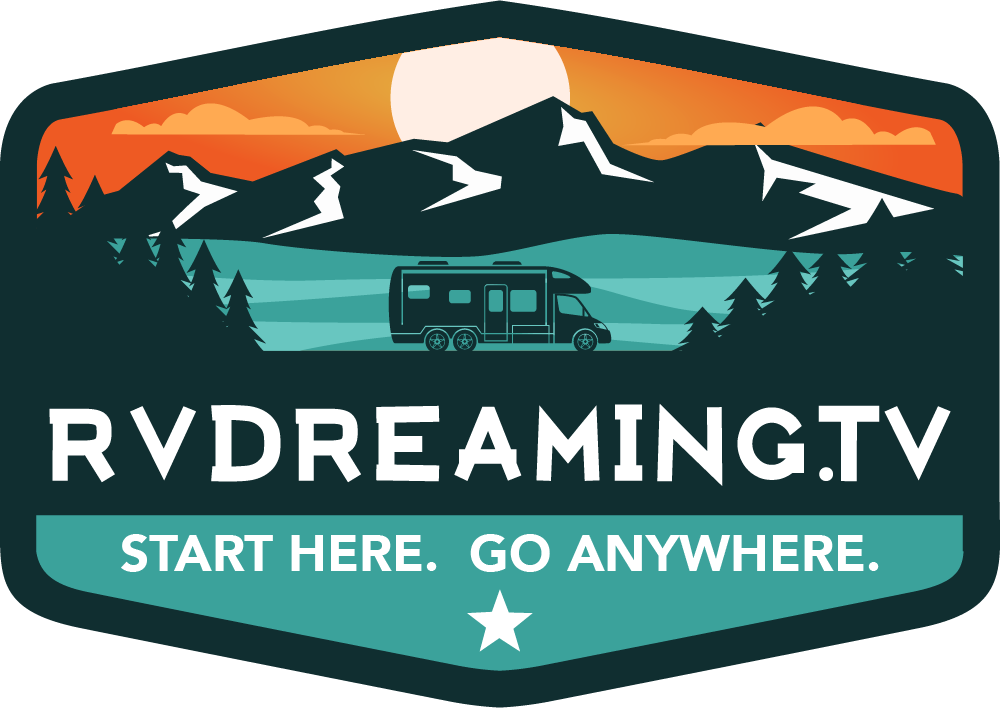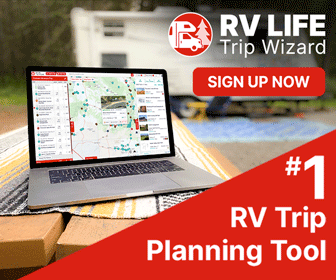
Follow @StuartDoingStuff on Instagram for more full-tine RV Life and VanLife content
The RV lifestyle beckons many with its promise of freedom and adventure. But is it a fleeting fancy or a sustainable choice? Let’s explore.
The Allure of the RV Lifestyle
Why Do People Start?
- Freedom and Flexibility: The RV lifestyle offers unparalleled freedom. No longer tied to one location, you can wake up by the beach one day and in the mountains the next. This flexibility is a significant draw for those feeling confined by traditional living.
- Financial Benefits: For many, the RV lifestyle can be more cost-effective than maintaining a home. With no property taxes, reduced utility bills, and the ability to choose where you stay, many find financial freedom on the road.
- Simpler Living: The RV life forces minimalism. With limited space, you prioritize what truly matters, leading to a decluttered life and mind.
- Adventure: The thrill of discovering new places, meeting diverse people, and experiencing varied cultures is a powerful motivator. Every sunrise offers a new adventure.
The Reality Check: Why Do Some Quit the RV Lifestyle?
- Space Limitations: While cozy, RVs can feel cramped, especially for families. Over time, the lack of space can become a strain, leading some to yearn for more room to stretch.
- Maintenance Issues: RVs, like all vehicles, require maintenance. Unexpected breakdowns can be costly and disrupt plans, leading to frustration.
- Lack of Stability: The nomadic nature of RVing means constantly adapting to new environments. For some, the lack of a permanent base can become emotionally taxing.
- Social Isolation: While the RV community is vibrant, being on the move can sometimes lead to feelings of isolation, especially if traveling solo.
Longevity in the RV Lifestyle
Average Duration of the Full-Time RV Lifestyle
While the average duration is 3-5 years, the range is vast. Some find their groove and RV for decades, while others realize it’s not for them within months.
Long-Term Pros and Cons of the RV LIfe
- Pros:
- Ever-Changing Scenery: The world becomes your backyard. From national parks to urban centers, the variety is endless.
- Community: Despite the nomadic nature, RVers often form deep connections, creating a global community of like-minded souls.
- Cost-Effective: With strategic planning, RVing can be more affordable than traditional living, especially when avoiding peak seasons and touristy spots.
- Cons:
- Weather Dependency: RVs are susceptible to weather extremes. Harsh winters or scorching summers can dictate your location and plans.
- Limited Space: While minimalism has its perks, limited storage can be challenging, especially for hobbyists or those with larger families.
- Routine Maintenance: An RV is both a home and a vehicle, doubling the maintenance responsibilities.
Preparing for the Unexpected
Financial Preparedness
- Emergency Funds: Just like in a traditional home, unexpected expenses can arise. Having a dedicated emergency fund can alleviate the stress of unforeseen RV repairs or medical emergencies.
- Insurance: Ensure you have comprehensive insurance that covers both your RV as a vehicle and as a living space. This can be a lifesaver in case of accidents or natural disasters.
- Budgeting: Living on the road doesn’t mean you can forego budgeting. Track your expenses, plan for maintenance, and always be aware of your financial health.
Emotional and Mental Well-being
- Stay Active: Physical activity is crucial. Whether it’s hiking, biking, or simple stretches, keeping active can significantly impact your mental well-being.
- Seek Support: If feelings of isolation or overwhelm persist, consider seeking professional help or counseling. Mental health is as crucial as physical health.
- Stay Engaged: Pursue hobbies, learn new skills, or even work remotely. Keeping the mind engaged can provide a sense of purpose and fulfillment.
The Environmental Impact
Sustainable RVing
- Eco-friendly Choices: Opt for solar panels, reduce water waste, and be conscious of your energy consumption. Every little bit helps in reducing your carbon footprint.
- Leave No Trace: Always clean up after yourself. Respect nature and the places you visit, ensuring they remain pristine for future travelers.
- Support Local: Buying local produce and supporting small businesses can not only provide a more authentic experience but also reduce the environmental impact of transporting goods.
Insights from Long-Term RVers
Sustainability and Balance
- Routine is Key: While spontaneity is a perk, establishing a semblance of routine provides comfort and stability. This could be as simple as morning coffee rituals or weekly video calls with family.
- Stay Connected: Technology has made staying connected easier. Regular check-ins with loved ones and joining online RV communities can combat feelings of isolation.
- Take Breaks: It’s okay to park in one place for extended periods. These breaks can rejuvenate the spirit and prevent burnout.
- Diversify Locations: To keep the experience fresh, mix up your locations. Combine nature retreats with city visits.
Preventing Burnout for New RVers
- Start Slow: The transition can be overwhelming. Begin with shorter trips to familiarize yourself with the RV lifestyle.
- Seek Community: Engage with fellow RVers. Their experiences and advice can be invaluable.
- Educate Yourself: Understand your RV inside out. Knowledge can prevent mishaps and reduce stress.
- Plan Ahead: While spontaneity is fun, having a rough plan, especially concerning routes and stays, can be reassuring.
Knowing When It’s Time to Stop
Self-awareness is vital. If the journey feels more burdensome than joyful, or if personal circumstances change, it might be time to reconsider. Remember, it’s about the journey, not the destination.
Conclusion
The RV lifestyle, like any other, comes with its set of challenges and rewards. Its sustainability largely depends on individual preferences, adaptability, and preparedness. With the right mindset and resources, the RV lifestyle can be a fulfilling long-term choice. Remember, at RV Dreaming, our motto is, “Start Here. Go Anywhere.” With the right preparation, you can ensure that “anywhere” is as sustainable and enjoyable as you dream it to be.

















RECENT COMMENTS